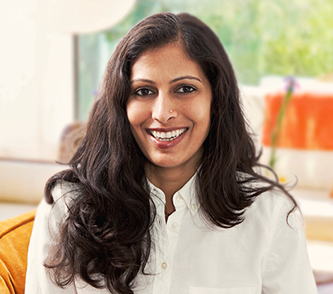Authenticity is one of those Rorschach test-type words, as in it means different things to different people depending on what they want it to mean. I can see how it can have multiple shades of meaning, but at its essence, it’s about truth.
In actionable terms, being authentic looks like being honest about your desires and beliefs and acting on them without adjusting them to be more in line with “the norm” or what you know others want or prefer.
It sounds easy: you just act on how you feel, go with your inner flow, no work required, and you’re happy. Right?
Partially right. It’s not always as easy as that. There’s a lot of vulnerability involved in staying the course of your thoughts and feelings, especially if they’re unpopular. If you go your own way, and your own way isn’t in line with the company you’re keeping, you risk not being accepted by others or called out, even potentially losing a relationship. That feeling of being exposed can be a bad one, and those bad feelings can cause people to check their authenticity against the outside world’s expectations and shift their core self to meet those expectations.
We all know there is pressure to “fit in” to our communities. It’s not easy being the minority who holds certain opinions, looks, or acts in ways that differ from the crowd. But fitting in is hard work, or sometimes not even possible, because no one person is the locus of opinion, appearance, or behaviour. Trying to accommodate others then becomes a slippery slope. Before long, we can lose sight of our true selves, which can make us feel odd in our skin, or as if we are wearing a mask.
Of course, stopping to consider others by thinking about how to frame a thought before speaking or being sensitive to people we like or with whom we matriculate isn’t a bad thing. We do live in a societal system, and it’s important to co-exist with others harmoniously.
I feel authenticity and wellbeing are on a bell curve. There is a sweet spot in the authenticity spectrum that serves you and everyone around you well. It’s a little beyond living by all the rules you’ve accumulated in your life, but not so far that you are a menace to society. In order to find it, you have to determine why the rules in your life are there and whether they actually apply to you. What are the consequences for not following the rules? Are those consequences bad enough for you that you’d rather conform than deal with them so you can be authentic? In which environments are the consequences less severe or more tolerable?
Let’s look at something most women deal with every day: wearing a bra. I don’t know anybody who likes wearing a bra, but it’s generally considered socially acceptable to wear one. Where would be the bra-wearing sweet spot for you? The curve (pun intended) is different for each person. What would the consequences be for not wearing one? Would not wearing one change or plant a reputation you don’t want? Would not wearing one potentially cause a safety concern (back/posture health or unwanted sexual advances)?
If the two poles of the spectrum are a) not caring what anyone thinks and you would be happy to be free anywhere, anytime, and b) the girls have to be on heavy duty lockdown 24/7, most people would land somewhere in the middle. If that’s you, perhaps it’s time to consider how you can live more authentically to your own desires but still circulate at work or on the playground in ways that are comfortable for you: wearing a bralette, not wearing a bra at home, or befriending more women who don’t wear bras so that no bra wearing in public becomes more of a norm for you. In this case, the idea is finding maximum comfort for yourself while experiencing the fewest consequences.
Now let’s look at something much more complicated: your stance on race relations. I chose this as an example because unlike your personal choices that affect only you, in this case, your attitudes, thoughts, and behavior on this issue can affect others.
Love, hate, respect, anger, resentment, curiosity, and ambivalence are all authentic emotions, and in and of themselves are valid. Acting on them however isn’t always acceptable. What are the rules to respecting someone? There are laws that we should all abide by, but those laws do not enforce all of our actions. Is feeling hate without acting upon it still OK? What is your definition of co-existence? How do you interact with someone you disagree with? Considering your true thoughts and feelings on race requires you to consider your moral code and how it might differ or be similar to the moral code in those around you.
What makes this example yet more complicated is many of the emotions are amplified by a long history of oppression, intolerance, injustice, and fear. There is no common societal expectation as to how to handle race relations. It’s impossible to figure out where on the curve you are against the general public or the “norm,” because the general public’s opinion is so varied. With a matter like this, what you will find is that your level of authenticity will be fluid based on the company you keep (either by choice or necessity) and your level of desire to advocate for your opinions.
As important as it is to live authentically, it is equally important to have some understanding of how much authenticity is best for you. It is a valuable exercise to consider what your authentic self would be like in a vacuum in order to identify who you really are and to honour that, but it’s still wise to consider what the environment around you is like and adjust your authenticity level so you are able to comfortably operate in that environment. If “the truth shall set you free,” it’s the consciousness that makes the experience of identifying your authenticity valuable. Which as a result will make your life more fulfilling.



